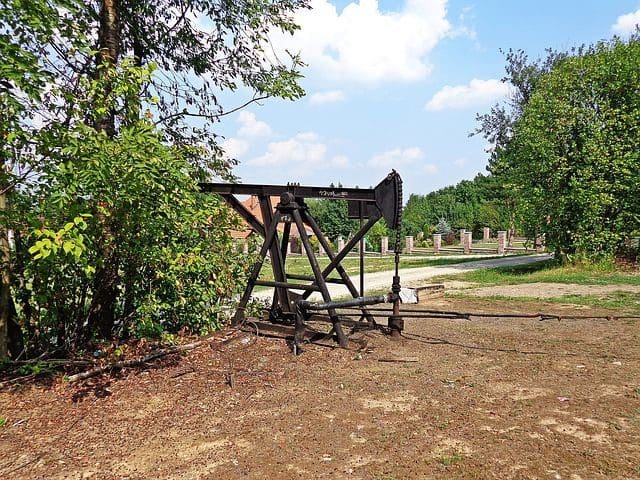The Lonestar state will take advantage of an initial $25 million grant hammered out through President Biden’s infrastructure plan to plug nearly 800 abandoned oil and gas wells. While the state contains approximately 7,400 documented oil and gas wells in need of plugging, some believe the estimation to be shy of the target total considering additional funds are expected to be potentially directed to Texas through the federal program.
With an estimated price tag of $482 million to plug all 7,400 documented wells, Texas intends to apply for additional funding to continue the process after the initial 800 wells have been plugged. However, a Department of the Interior estimate indicates the state might only benefit from a reduction equaling approximately $344 million in federal funding. Regardless of the total budget allocated, federal funding will assist in shoring up the state’s program of cleaning up abandoned wells.
Apprehension, however, still infiltrates the cause. The Dallas Morning News published an editorial where Texas Railroad Commissioner Jim Wright indicated that federal dollars usually come with an ulterior motive but still felt Texas should accept the assistance.
“As a lifelong Texan and staunch conservative, I’m not one to advocate for accepting federal funds unless it is absolutely necessary because it too often comes with additional oversight or limits on how the state can utilize these funds. However, it would be a mistake to forgo these federal funds,” wrote Wright. “Supplementing our existing funding with additional federal dollars will allow the Railroad Commission to attain greater cost efficiencies in our plugging program.”
While opinions vary, the federal government appears to address this new state and federal partnership from a different vantage point. Instead of apprehension, the Department of the Interior offers a unified perspective from their point of view.
“It’s an important example of the federal government and state governments working together in a bipartisan fashion,” said the Interior Department’s Senior Advisor and Infrastructure Coordinator, Winnie Stachelberg, in an interview. “This is the federal government and Texas working together, identifying a problem. These are orphaned oil and gas wells that leak methane, that litter the landscape, that cause damage to our environment, to wildlife, to private land, to ranches, to agriculture.”
Suspicions and concern surround the new deal with Commission Shift, a watchdog group, expressing doubt of its own. Focused on reforms to the state’s oil and gas industry oversight, the organization stated it would welcome the federal funding. Still, fears there are currently too many extensions provided to current operators to cap those wells listed in the state’s plugging and abandoning the program. With over 140,000 unplugged wells considered inactive for over a year, Virginia Palacios, Commission Shift Executive Director, reasoned it is more than just a legacy problem.
“It’s exposed landowners to the risk that wells, sitting around unplugged and eventually blowing out, were leaking. And so, it is good that we have these federal funds to help lower the backlog, but we’re expecting to have more and more orphan wells,” said Palacios. “A lot of these orphan wells are being orphaned in modern times, every single year, by existing operators. What we would like to see is for the Railroad Commission to change the way it allows plugging extensions for current operators.”
Although Palacios feels measures must be instituted that ensure operators plug their wells, Texas Railroad Commission Chairman Wayne Christian applauded the well-plugging program managed by the state.
“Approximately 92 percent of the wells plugged in Texas are plugged by the operator of record using no taxpayer funds. In the last five years, RRC outperformed Texas legislature requirements by an overall average of about 20 percent, plugging 1,453 wells last year alone,” said Christian. “Plugging orphan wells is an issue the Railroad Commission takes extremely seriously. The Commission has world-class expertise plugging wells and uses public funds responsibly to benefit the safety and security of Texans and our environment.”
While opinions vary, the federal government appears to address this new state and federal partnership from a different vantage point. Instead of apprehension, the Department of the Interior offers a unified perspective from their point of view.
“It’s an important example of the federal government and state governments working together in a bipartisan fashion,” said the Interior Department’s Senior Advisor and Infrastructure Coordinator, Winnie Stachelberg, in an interview. “This is the federal government and Texas working together, identifying a problem. These are orphaned oil and gas wells that leak methane, that litter the landscape, that cause damage to our environment, to wildlife, to private land, to ranches, to agriculture.”
Nick Vaccaro is a freelance writer and photographer. In addition to providing technical writing services, he is an HSE consultant in the oil and gas industry with twelve years of experience. Vaccaro also contributes to SHALE Oil and Gas Business Magazine, American Oil and Gas Investor, Oil and Gas Investor, Energies Magazine and Louisiana Sportsman Magazine. He has a BA in photojournalism from Loyola University and resides in the New Orleans area. Vaccaro can be reached at 985-966-0957 or nav@vaccarogroupllc.com.






